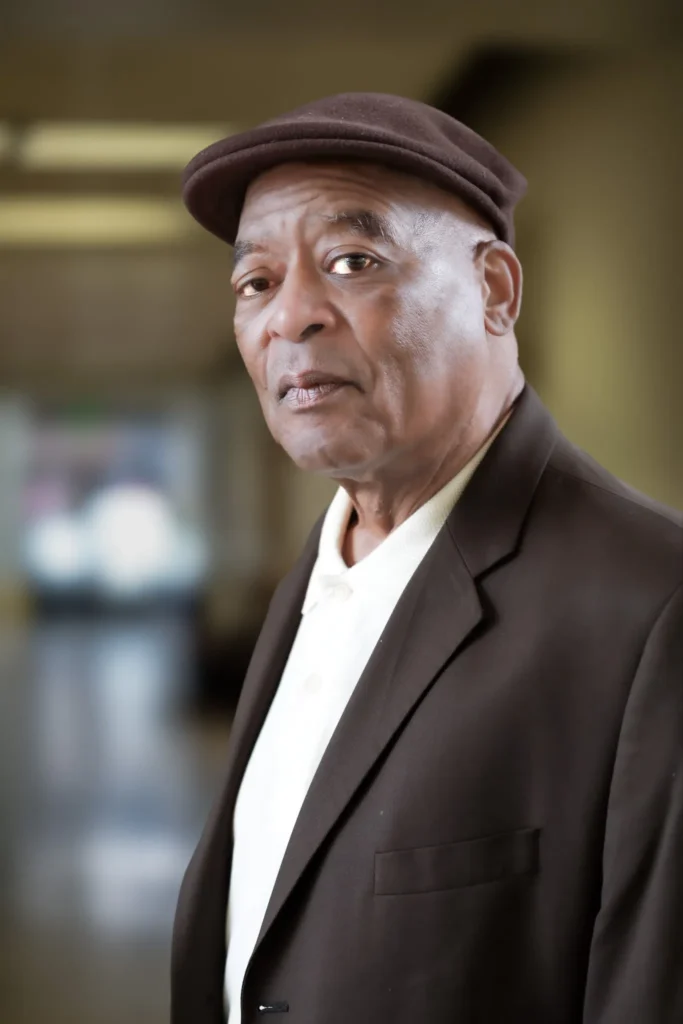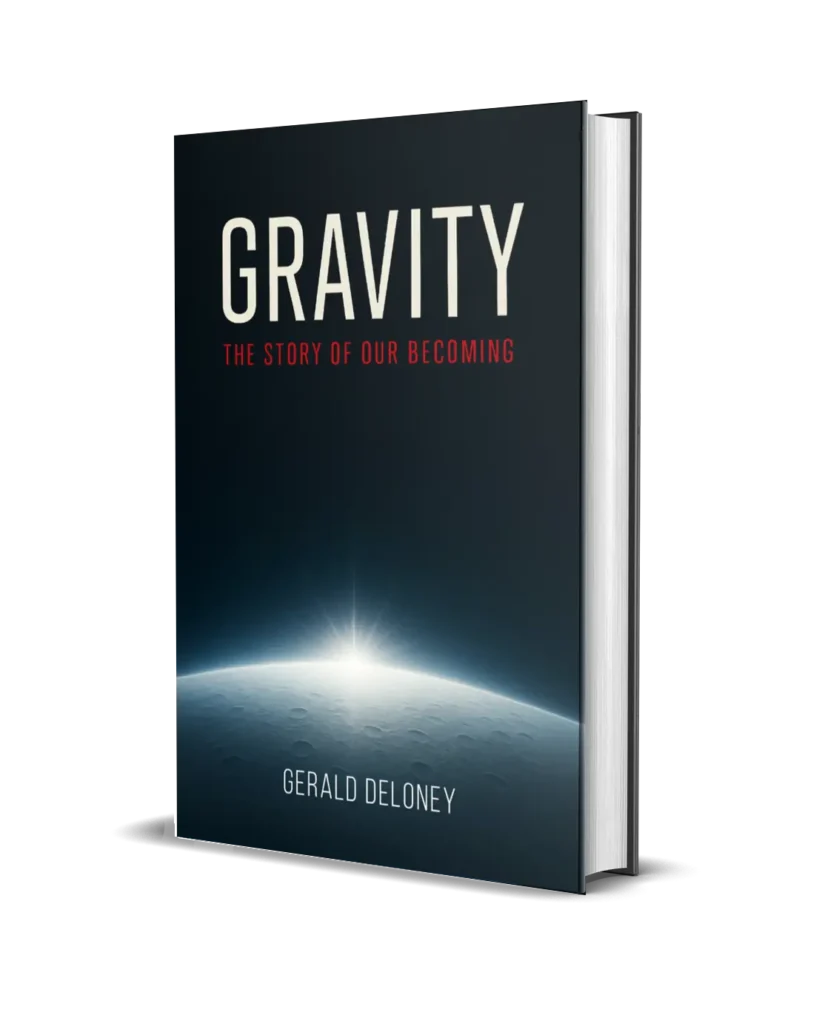The Author
Gerald Deloney
Gerald Deloney is an author, systems thinker, and architect of learning frameworks based on coherence, equity, and ethical growth. As President and CEO of S Point Management and Training, Inc., he develops programs that help young adults shape their choices, futures, and the systems they inherit.
His upcoming release, Gravity, is a powerful and poetic call for change a demand to break free from the cycles of greed, environmental disaster, and collective forgetfulness. It’s more than just a book. It’s a plea for clarity in a world addicted to chaos.
Meanwhile, Gerald is the visionary behind Coaching for Life—a paid development program that provides young adults with the language, structure, and financial foundation to live intentionally and lead ethically. It brings the core principles of *Gravity* into practical application.
Together, these works challenge the myth of neutrality in broken systemsand offer a way forward, rooted in rhythm, restoration, and authorship.


The Book
Gravity
The story of our becoming
Gravity: The Story of Our Becoming by Gerald Deloney is a profound interdisciplinary work that bridges science, philosophy, spirituality, and human development to examine how humanity evolves—individually and collectively—within the greater structure of the universe. Using gravity as both a scientific principle and a metaphor, the book explores the unseen forces that shape matter, consciousness, memory, belief, and human behavior.
The book invites readers into a “mnemonic audit,” encouraging them to distinguish between inherited beliefs shaped by culture, religion, colonialism, and power structures, and consciously authored thought rooted in intention, coherence, and self-awareness. Drawing from physics, cosmology, psychology, history, and social dynamics, Deloney reframes gravity as a binding force not only of galaxies and spacetime, but of human relationships, communities, identity, and legacy.
Also Available On




The Book
Coaching: for Life
Becoming: A lifelong Journey
Coaching for Life by Gerald Deloney is a transformative guide designed to help individuals—particularly young adults—navigate the complex journey into mature, purposeful adulthood. Grounded in developmental psychology, critical thinking, and real-world application, the book emphasizes learning how to think, not what to think. It provides a structured framework for personal growth that integrates self-reflection, problem-solving, teamwork, body and mind mastery, and financial empowerment.
The book goes beyond traditional self-help by addressing systemic and generational challenges faced by women, people of color, and individuals impacted by generational poverty. Through the innovative Coaching for Life model, readers are guided through a practical, experiential process that mirrors real-life decision-making. By fostering intellectual autonomy, resilience, collaboration, and economic confidence, the book positions coaching as a vital tool in the human maturation process.

What Others Say About Us
Explore Blogs and Articles

July 21, 2025
Aliqua dolor culpa qui enim laborum ad proident.
Facere aliqua lorem amet, irure fugiat iure, officia recusandae eaque adipiscing cum. Doloremque sed adipiscing...

July 21, 2025
Ipsum ea sit non et irure adipiscing voluptate.
Facere aliqua lorem amet, irure fugiat iure, officia recusandae eaque adipiscing cum. Doloremque sed adipiscing...

July 21, 2025
Ullamco tempor magna eiusmod sit labore qui est.
Facere aliqua lorem amet, irure fugiat iure, officia recusandae eaque adipiscing cum. Doloremque sed adipiscing...
Author Q&A – Gerald Deloney
What is your education?
My education has been both formal and lived. I studied Political Science and Communication at the University of Oregon, where I also developed a personal passion for history. My academic journey continued through specialized studies in Deviant Sexuality, driven by my frontline work with high-risk youth and a caseload that included sex offenders. I also pursued ongoing education in organizational leadership and systems development. I completed my studies at the University of Oregon with more than the required hours for a BS in science and slightly fewer than the hours needed for a double major.
As a high school student, I launched the first African American-focused youth program in Oregon, which secured over $250,000 (in 1970 dollars) in federal funding within three years. Later, I designed and established the core structure of the Self Enhancement, Inc. program, which is still operating with its original model.
Over the past 25 years, I have led program development and institutional growth within nonprofit and public systems, including conducting seven comprehensive community evaluations. In 2002, I independently replicated the Self Enhancement Program Model in Miami, Florida, for Alonzo Mourning Charities. The replication continues to operate today.
One of those evaluations—a landmark study on violence prevention funded by the CDC—was cited in the American Journal of Violence Prevention in 1999. More recently, I co-authored the “Unsettling Profile” research series with Dr. Ann Curry-Stevens and Matt Morton, which examined racial equity disparities in Multnomah County. The references are available on Academia.edu. During that time, I served as Chair of the Coalition of Communities of Color and secured multi-year funding for communities of color across the region. I also helped found the Portland African Leadership Forum.
However, beyond titles and credentials, my most profound education has come from teaching and learning alongside leaders, scholars, and youth alike—including meaningful collaborations with Dr. Jeffrey Sprague and Dr. Mark Katz. I view learning as something lived, relational, and ever-evolving—not simply something earned through institutions.
What inspired you to become a writer?
Writing became my only way to make sense of everything I observed—systems that didn’t add up, people enduring what no one should, and profound questions about meaning, identity, and transformation. Writing gave shape to my thoughts, and eventually, I felt compelled to share them.
When did you first start writing, and what was your first published work?
I’ve been journaling and sketching philosophical reflections since I was a teenager. My first published work was a guide for educators working with disconnected youth; however, the Becoming framework has since developed into a comprehensive theory of ethical and developmental transformation.
Can you tell us about your childhood and how it influenced your writing?
I grew up in a world where rhythm, struggle, and improvisation were always present. My childhood instilled in me a deep sense of injustice, but also an appreciation for the beauty of how people supported each other in the face of it. I was bused for racial equality in grade school, which left a lasting impact on my life. I carry the musicality, grit, and sense of interdependence from that upbringing into everything I create.
Who are your biggest literary influences?
James Baldwin, Toni Morrison, Paulo Freire, Octavia Butler, and Bell Hooks have all significantly influenced me. I am also deeply inspired by Black Pentecostal rhythm, West African cosmology, and oral storytellers who never published a single word but carried worlds within their voices.
How do you approach the writing process? Do you have any specific routines or rituals that you follow?
I tend to write in waves—more guided by rhythm than discipline. When a question captivates me, I dwell on it. I journal, sketch, and walk. Then I write in long, sustained stretches when it feels like the idea is ready to come. Music and solitude help the language find its rhythm.
Can you describe your writing style in three words?
Coherent. Embodied. Relational.
What challenges have you faced as a writer, and how have you managed to overcome them?
The hardest part has been balancing the abstract and the practical—how to turn philosophy into a form without losing its depth. I’ve managed this by working with youth, educators, and leaders in real time—improving the writing through feedback, disagreement, and repetition.
What do you think sets your writing apart from others in your genre?
I create frameworks that don’t just inform people—they encourage transformation. I don’t just present theory; I provide tools for growth, rooted in identity, rhythm, and responsibility. My writing connects with both the heart and the system.
Can you talk about any upcoming projects or releases?
Yes—The Theory of Becoming: Part II – The Living Guide is upcoming. It expands on personal, interpersonal, and institutional growth. I have finished Coaching for Life, a framework for young adult development, paid mentorship, identity building, and ethical leadership.
Is there anything in particular you would like readers to know about you or your writing?
I don’t write to explain things. I write to guide people through complexity. My books are meant to be experienced, discussed, and wrestled with. They aren’t answers—they’re invitations.
What is your philosophy or worldview?
We’re all growing. The most vital work in our lives is to live in alignment—where our inner truth matches our impact on the world. I believe in rhythm, sacred structure, restoration, and collective liberation.
Can you describe a significant turning point or moment of growth in your life?
Becoming a teacher to young people whom every system had written off changed me forever. Their questions prompted me to refine my own. Their resilience shaped what I now understand about learning, freedom, and rhythm.
What do you think is the most important lesson you have learned so far in life?
Nothing truly happens without trust and rhythm. We can’t rush transformation. It must be embodied, reflected, and practiced within relationships.
How do you balance your writing career with other aspects of your life, such as family, friends, and hobbies?
I don’t see it as balance—I see it as integration. My work is deeply relational, and my relationships breathe life into it. I write, I walk, I laugh, I sit with people. Writing flows from life, not separate from it.
What do you like to do for fun or relaxation?
Long walks through native woods. Philosophical talks at the wrong hour of the night. Cooking, jazz, and watching the sunrise before the city wakes up.
What is something most people don't know about you?
I sense relational rhythms before I understand the words. In a room, I often feel what people mean long before they say it. That’s shaped how I listen, write, and lead. I believe our rhythms communicate more than words; language is an inefficient way of communicating, and we’ll evolve beyond the need for verbal communication.
How do you stay motivated and overcome obstacles in your life?
I stay grounded in rhythm, trusted relationships, and a long-term perspective. When things fall apart, I pause, return to stillness, walk, and remember who I am and why I do this work. I also allow others to support me when I forget. We can’t retire for life; when we do, it’s time to regenerate into our next life cycle.